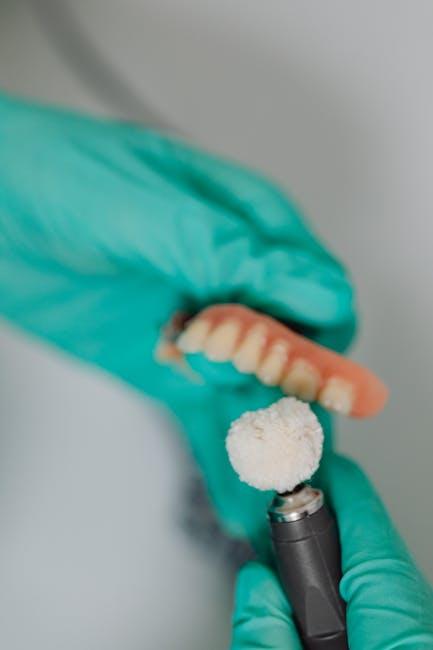
Coverage of Dental Services in Traditional Medicare – KFF Insights
When it comes to dental health, many seniors and Medicare beneficiaries often ask: Does Traditional Medicare cover dental services? According to in-depth research by the Kaiser Family Foundation (KFF), the answer is largely nuanced. Understanding the scope, limitations, and alternative options for dental coverage under Traditional Medicare can empower beneficiaries to make informed healthcare choices. In this comprehensive guide, we’ll explore the essentials of dental coverage under Traditional Medicare, drawing on KFF data and insights to help you navigate your benefits confidently.
What Is Traditional Medicare?
Traditional Medicare refers to the federal health insurance program primarily for people aged 65 or older, and certain younger individuals with disabilities. It consists of two main parts:
- Part A (Hospital Insurance): Covers inpatient hospital stays, skilled nursing facility care, hospice, and some home health services.
- Part B (Medical Insurance): Covers outpatient care, doctor’s visits, preventive services, and medically necessary treatments.
While Traditional Medicare offers extensive health coverage, it does not comprehensively cover dental care — a fact many beneficiaries are surprised to learn.
Dental Coverage Under Traditional Medicare: What Does KFF Say?
The Kaiser Family Foundation (KFF), a trusted non-profit organization dedicated to health policy research, outlines that Traditional Medicare generally does not cover most dental services. This includes routine dental care like cleanings, fillings, tooth extractions, dentures, or other common dental procedures.
Services Typically Not Covered by Traditional Medicare
- Routine dental exams and cleanings
- Fillings and extractions
- Crowns, bridges, and dentures
- Orthodontic services
- Other dental appliances or cosmetic dental treatments
However, there are important exceptions: Medicare Part A may cover certain dental services if they are necessary and provided as part of medically-necessary hospital care. For instance, if you require jaw surgery as a result of an accident, or teeth extraction related to a broader medical issue like oral cancer.
Comparison Table: Dental Coverage in Medicare Parts A & B
| Medicare Part | Dental Service Coverage | Conditions/Notes |
|---|---|---|
| Part A (Hospital Insurance) | Limited coverage for dental services | Only if dental care is part of medically necessary hospital treatment |
| Part B (Medical Insurance) | No coverage for routine dental care | Covers dental exams only when related to other covered medical services (e.g., dental X-rays for diagnosing certain health conditions) |
Why Is Dental Coverage Limited in Traditional Medicare?
Medicare was originally designed to cover hospital and medical care but not routine dental services. Since oral health is often viewed separately, the program’s framework inherently excludes regular dental care. KFF emphasizes that dental care is a key part of overall health but is largely left for beneficiaries to cover through other means.
Alternatives for Dental Coverage for Medicare Beneficiaries
If you’re enrolled in Traditional Medicare and want dental benefits, consider these options:
- Medicare Advantage Plans (Part C): Many Medicare Advantage plans offer dental benefits, including routine care, cleanings, and dentures. These plans bundle Medicare Parts A, B, and often D and additional benefits under one plan.
- Stand-alone Dental Plans: Beneficiaries can purchase dental insurance separate from Medicare to cover routine visits, treatments, and emergency dental care.
- Community Health Clinics and Dental Schools: These facilities often offer low-cost dental services, which can be an option if insurance is limited.
- Medicaid: For eligible low-income beneficiaries, Medicaid may provide dental coverage, though benefits vary by state.
Practical Tips for Managing Dental Care with Medicare
- Review Your Coverage Annually: If you have a Medicare Advantage Plan, check the annual Summary of Benefits to understand dental coverage changes.
- Budget for Out-of-Pocket Dental Expenses: Since Traditional Medicare doesn’t cover routine dental care, plan ahead for dental cleanings, fillings, or crowns.
- Seek Preventive Care: Maintaining dental health with regular checkups can reduce costly procedures later.
- Consult Your Dentist About Medical Treatments: Some dental procedures linked to medical conditions might be partially covered by Medicare—always ask.
Case Study: Mary’s Journey Navigating Dental Coverage
Mary, a 68-year-old retired teacher, was surprised when her first Medicare Explanation of Benefits showed no payment for a dental cleaning. After researching through KFF resources and consulting her plan provider, Mary switched to a Medicare Advantage plan that included dental benefits. This switch helped her save hundreds annually on dental care while ensuring regular preventive visits and treatment for cavities.
Key Takeaways from KFF’s Analysis on Medicare Dental Coverage
- Traditional Medicare does not cover routine dental services for most beneficiaries.
- Coverage may exist only when dental care is linked to medically necessary hospital procedures.
- Medicare Advantage plans often provide dental benefits and can be a valuable option.
- Planning and supplemental coverage are essential for managing dental healthcare costs.
Conclusion
Dental health plays an essential role in overall well-being, yet Traditional Medicare’s coverage for dental services is highly limited, as highlighted by KFF. Understanding this gap helps Medicare beneficiaries prepare and seek alternative coverage options, such as Medicare Advantage plans or separate dental insurance. By staying informed and proactive, you can protect your smile and your health without facing unexpected out-of-pocket expenses.
For more detailed and updated information, always refer to official Medicare resources and KFF’s comprehensive healthcare analyses.


